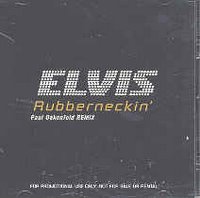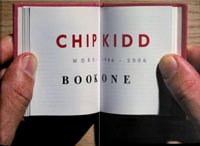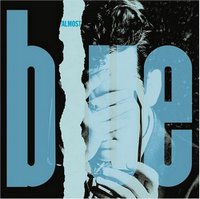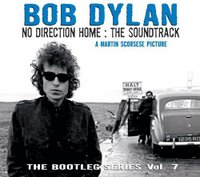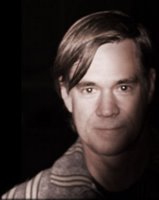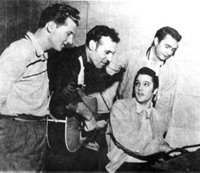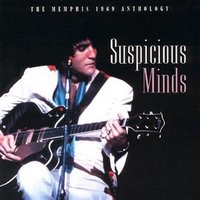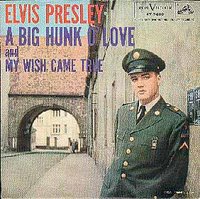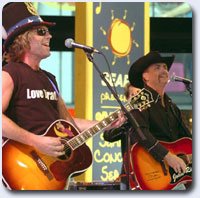
My friend Mara circulated this article. EP gets a mention:
http://www.latimes.com/business/la-fi-ricky27dec27,1,2167205.story?ctrack=1&cset=true
Old Nelson Songs Aimed at New Fans
EMI hopes that its compilation duplicates the success of last year's Dean
Martin CD as it mines its catalog for hits.
By Charles Duhigg, Times Staff Writer
Twenty years to the week after his death, Ricky Nelson is rocking again.
Starting today music giant EMI Group is launching a fresh collection of
Nelson's greatest hits, part of a larger effort to sell a new generation of
music fans on artists popular with their parents — maybe even their
grandparents.
ADVERTISEMENT
Armed with months of research from focus groups, consumer researchers and
market data experts, EMI hopes "Ricky Nelson: Greatest Hits" will replicate
the company's success last year in making "Dino: The Essential Dean Martin"
a sleeper hit by convincing young listeners that the late crooner was hip
again.
That album sold 759,000 copies, according to Nielsen Soundscan. It was the
bestselling Dean Martin album in more than 30 years.
Nelson, however, is a special challenge. Although he sold 35 million records
by the time he was 22, and had 17 hits in the top 10, he is virtually
unknown to younger music fans. Most reissues of his hits in recent years
have been lucky to sell 10,000 copies.
"Ricky Nelson is a whole different type of artist," said Geoff Mayfield, a
senior analyst at Billboard magazine. "He isn't cool the way Dino was."
Enter EMI Music Marketing President Ronn Werre, who hopes to "re-brand"
Nelson just as he did Dino. A former Campbell Soup Co., Procter & Gamble Co.
and Coca-Cola Co. executive, Werre believes market research can make old
hits bestsellers again.
"For years, the music industry relied on its gut rather than data to sell
songs," Werre said. "Now, we're using the same techniques Procter & Gamble
uses to sell pet food."
Today's Nelson album debut comes four days before the 20th anniversary of
his death at age 45 in a plane crash while traveling to a New Year's Eve
concert in Dallas.
Nelson grew up in black and white in America's living rooms as a star on his
family's "The Adventures of Ozzie & Harriet." As a teenager, he launched a
rock 'n' roll career that featured such hits as "Hello, Mary Lou," "Poor
Little Fool," "Lonesome Town" and "Travelin' Man." Although his career waned
when the sitcom ended in 1966, Nelson enjoyed a comeback in the 1970s as a
country rock singer with the hit "Garden Party."
Werre chose the singer as his next project after learning that the A&E
biography of Nelson's family was the channel's most popular one after Oprah
Winfrey's.
Werre's research led him to carve up the potential Nelson audience into two
groups — Midwesterners and blue-collar buyers — and to advertise
with TV shows and magazines they like.
Researchers asked consumers what popped into their minds when they heard
Nelson's name. Middle-class respondents 45 years and older had fond memories
of Nelson's early years. Midwestern listeners recalled the innocent family
values of "Ozzie & Harriet."
"Research showed that Ricky could sell well in conservative markets," said
Herb Agner, vice president of catalog marketing for EMI.
Werre and his staff painstakingly tested the new Nelson CD, studying
consumer response to liner notes and song lists. They concluded that the
best image to promote was that of a young adult Nelson — somewhere
between the country rock "Rick Nelson" and baby-faced "Ricky" who made
teenage girls swoon when he was barely old enough to shave.
"Everything from the cover photo to the title of the Ricky Nelson album was
influenced by data from dozens of focus groups," Werre said.
EMI also is hoping sales will benefit from a public-TV special about Nelson
this month, and a Larry King Live interview scheduled tonight with members
of his family. Quotes from Bob Dylan and the late Elvis Presley praising
Nelson were incorporated into the advertising campaign.
"At Procter & Gamble we were always aware that we had to listen really
closely to consumers, because there's always another soda or laundry
detergent," Werre said. "But the music industry has sometimes paid more
attention to bands than consumers."
EMI's current roster includes the Rolling Stones and Coldplay, which both
released new albums this year. But the company's financial success depends
almost as much on older hits.
Catalog sales can make up as much as 40% of a record company's income. But
in recent years they have declined market-wide along with sales of newer
releases, a victim of the overall industry slump caused in part by
widespread illegal downloading.
Werre's strategy for boosting catalog sales so far has worked wonders. Sales
of EMI's older songs have grown 56% during the last three years, including
bestselling rereleases from the Beach Boys, George Thorogood and Nat King
Cole.
Reissuing Martin's hits last year seemed risky at the time. EMI had released
the singer's repertoire 90 times in 50 years, mostly targeting older
listeners.
But Werre's consumer research indicated that younger music buyers also liked
Martin — as long as it was the younger, hipper version. So EMI began
to view Martin as the Dino "brand," shunning the tuxedoed, graying Martin
for the smooth, confident Rat Packer making mischief with Frank Sinatra at
the Las Vegas Sands.
"We wanted to sell Dino to the guy who is a few years out of college and
trying to figure out how to make reservations at a fancy restaurant," Werre
said. "We want 30-year-olds to ask: 'What would Dino do?' "
The result was a CD packaged in cool grays showing a suave, youthful Martin.
Liner notes included an essay by Steven Van Zandt of HBO's "The Sopranos"
and Bruce Springsteen's E Street Band.
The company targeted older listeners with ads in Modern Maturity — the
magazine of AARP, formerly the American Assn. of Retired Persons. TV
commercials aired on the History Channel and Arts & Entertainment. Younger
consumers were targeted on ESPN and in Playboy.
The album sold 32,000 copies in its first week, debuting at No. 28 on the
Billboard chart. It is expected to exceed 1 million sales by next summer.
"The entire music industry has been figuring out new ways to mine their
catalogs for a while," Billboard's Mayfield said. "But 'Dino' was an unusual
success."
Beyond Nelson and Martin, EMI is working on a new compilation of songs from
1980s heavy metal band Poison, slated for release in April. Already, the
company's research has identified the Midwest and Southeast as prime Poison
country.
EMI's major rivals — Universal Music Group, Sony BMG Music
Entertainment and Warner Group — also have started using more refined
marketing techniques to sell their catalogs. Universal Music, for example,
is using infomercials to pitch Motown and 1980s compilations.
"The common wisdom is that the music industry's future is dire," Werre said.
"But as long as other companies can figure out ways to sell water and charge
premium prices for laundry detergent, I'm not worried about our ability to
sell songs."

